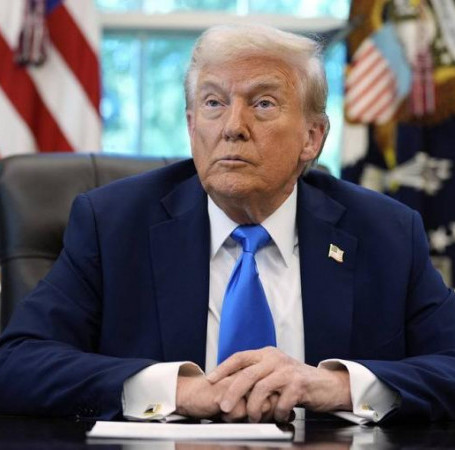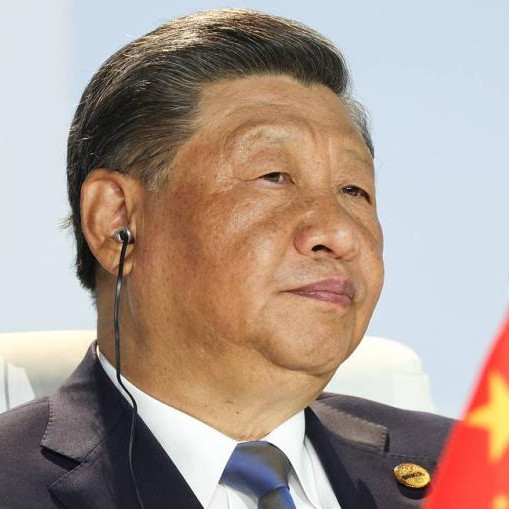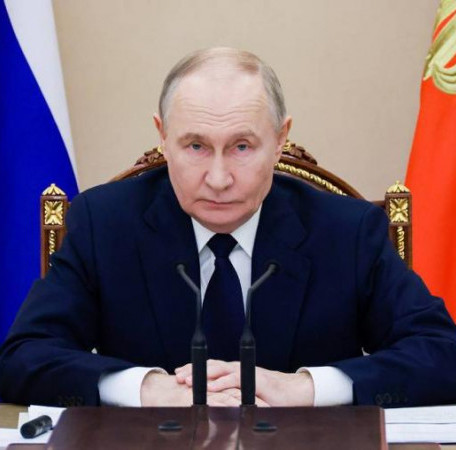The new anti-Israeli verbal attack made by the untiring Iranian president Mahmoud Ahmadi-Nejad in Mecca during the latest summit of the Organization of the Islamic Conference, has put in a jam not so much the official Tehran as Moscow who is Iran's main defender on the international scene.
The Iranian leader's calls for Germany and Austria to surrender part of their territory to accommodate the state of Israel on it and the repudiation of the genocide of Jews ("holocaust") during the Second World War caused – as well might have been expected – universal indignation and condemnation. UN Secretary-General Kofi Annan was "shocked" by Ahmadi-Nejad's words, while French president Jacques Chirac and new German Chancellor Angela Merkel, followed by British Foreign Ministry head Jack Straw, made harsh statements.
Moscow also had to adequately react to Ahmadi-Nejad's escapade in Mecca. The Russian Foreign Ministry took it as a denial of Israel's right to statehood, which of course cannot be accepted by any civilized country. A special envoy of the Russian Foreign Ministry for the Middle East, Alexander Kalugin, called the Iranian president's statement "contradictory to the norms of international law".
As viewed by chairman of the State Duma Committee for international affairs Constantine Kosachev, "this statement can only cause profound regret, as it is quite obvious that the new verbal attack against Israel made by the Iranian president, as well as the attempts to put in question the very fact of the holocaust during the Second World War, are absolutely out of touch with historical realities and the mood of the present-day world community ".
As is known, earlier the Iranian president had already caused a loud international scandal when, speaking at the conference "World without Zionism" in Tehran on October 26, he repeated the words of the late ayatollah Homeini: "Israel has to be wiped off the map". At that time observers had already noted that Ahmadi-Nejad's impulsive populistic pronouncements were in fact playing into the hands of the US and Israel who claim that Iran is "an irresponsible pariah state" and "a threat to the world community".
In connection with the new anti-Israeli declarations of the Iranian president, Washington officials say that they give even more validity to Washington's fears about Tehran's politics and to the necessity to prevent "by all means that regime's getting access to nuclear weapons". In fact, it confirms once again, if confirmation is needed, that the US is ready not only to get international sanctions imposed on Tehran, but also to resort, under certain conditions, to a military solution of the "Iran problem".
Still worse, however, is that the Iranian President has dealt with his pronouncements a new blow to Russia who is trying to play the part of Tehran's "international advocate". Now Moscow will have more difficulty in convincing its Western partners that a constructive dialog with the current Iranian leadership is still possible and that it is necessary to patiently talk to Tehran, rather than take harsh measures against it.
To top it all, the anti-Israeli attack by the Iranian president in Mecca took place practically right after the announcement of Russia's intention to provide Iran with 29 Tor M-1 air-defense missile complexes valued at over $700 million, and right on the eve of the arrival of an Iranian parliamentary delegation headed by speaker G. Haddad-Adel, on an official visit to Moscow.
Washington was quick to use the new pretext to redouble pressure on Moscow accusing it of cooperation with Iran in political, military and nuclear fields and expressing its "grave concern". New threats were voiced to use sanctions against those Russian businesses which supplied weapons and "double-use" nuclear technologies.
The majority of observers coincide in thinking that the public pronouncements of the Iranian president, difficult to explain from the viewpoint of common sense, have put that country into a still more disadvantageous position and discouraged its good-wishers. Russia and the European Union who stand for a peaceful solution of Iran's nuclear problem are simply nonplussed by Tehran's sudden antics which reduce to naught their attempts to help it find a way out of a jam.
Thus, recently the Iranian president has seriously let down Moscow by having turned down the Russia-sponsored compromise solution to have uranium enriched on Russian soil. Some observers believe the reason for it is Mahmoud Ahmadi-Nejad's being over-ambitious and politically immature, others think that in that way the Iranian president is trying to raise his standing in the eyes of the influential pan-Islamic circles.
Be that as it may, the pointed anti-Israeli line followed by the Iranian president does seriously undermine Tehran's attempts to establish normal relations with the outside world, and also the solution of the issue of its nuclear program. Nevertheless, Russia is extremely interested, for a whole number of reasons, in the situation around Iran getting promptly calmed down and channeled into a course of normal negotiations. Moscow fully endorses the opinion of the IAEA head Mohammed el-Baradei that any attempt to settle the Iranian crisis by any means other than diplomacy would be tantamount to courting disaster.
In view of all this, Russia seems to be bound, in spite of all the difficulties and using its influence on Tehran, to continue looking for such variants of solving Iran's nuclear problem which, providing for Iran's legitimate interests, at the same time would not contradict the interests of international security.
The Iranian leader's calls for Germany and Austria to surrender part of their territory to accommodate the state of Israel on it and the repudiation of the genocide of Jews ("holocaust") during the Second World War caused – as well might have been expected – universal indignation and condemnation. UN Secretary-General Kofi Annan was "shocked" by Ahmadi-Nejad's words, while French president Jacques Chirac and new German Chancellor Angela Merkel, followed by British Foreign Ministry head Jack Straw, made harsh statements.
Moscow also had to adequately react to Ahmadi-Nejad's escapade in Mecca. The Russian Foreign Ministry took it as a denial of Israel's right to statehood, which of course cannot be accepted by any civilized country. A special envoy of the Russian Foreign Ministry for the Middle East, Alexander Kalugin, called the Iranian president's statement "contradictory to the norms of international law".
As viewed by chairman of the State Duma Committee for international affairs Constantine Kosachev, "this statement can only cause profound regret, as it is quite obvious that the new verbal attack against Israel made by the Iranian president, as well as the attempts to put in question the very fact of the holocaust during the Second World War, are absolutely out of touch with historical realities and the mood of the present-day world community ".
As is known, earlier the Iranian president had already caused a loud international scandal when, speaking at the conference "World without Zionism" in Tehran on October 26, he repeated the words of the late ayatollah Homeini: "Israel has to be wiped off the map". At that time observers had already noted that Ahmadi-Nejad's impulsive populistic pronouncements were in fact playing into the hands of the US and Israel who claim that Iran is "an irresponsible pariah state" and "a threat to the world community".
In connection with the new anti-Israeli declarations of the Iranian president, Washington officials say that they give even more validity to Washington's fears about Tehran's politics and to the necessity to prevent "by all means that regime's getting access to nuclear weapons". In fact, it confirms once again, if confirmation is needed, that the US is ready not only to get international sanctions imposed on Tehran, but also to resort, under certain conditions, to a military solution of the "Iran problem".
Still worse, however, is that the Iranian President has dealt with his pronouncements a new blow to Russia who is trying to play the part of Tehran's "international advocate". Now Moscow will have more difficulty in convincing its Western partners that a constructive dialog with the current Iranian leadership is still possible and that it is necessary to patiently talk to Tehran, rather than take harsh measures against it.
To top it all, the anti-Israeli attack by the Iranian president in Mecca took place practically right after the announcement of Russia's intention to provide Iran with 29 Tor M-1 air-defense missile complexes valued at over $700 million, and right on the eve of the arrival of an Iranian parliamentary delegation headed by speaker G. Haddad-Adel, on an official visit to Moscow.
Washington was quick to use the new pretext to redouble pressure on Moscow accusing it of cooperation with Iran in political, military and nuclear fields and expressing its "grave concern". New threats were voiced to use sanctions against those Russian businesses which supplied weapons and "double-use" nuclear technologies.
The majority of observers coincide in thinking that the public pronouncements of the Iranian president, difficult to explain from the viewpoint of common sense, have put that country into a still more disadvantageous position and discouraged its good-wishers. Russia and the European Union who stand for a peaceful solution of Iran's nuclear problem are simply nonplussed by Tehran's sudden antics which reduce to naught their attempts to help it find a way out of a jam.
Thus, recently the Iranian president has seriously let down Moscow by having turned down the Russia-sponsored compromise solution to have uranium enriched on Russian soil. Some observers believe the reason for it is Mahmoud Ahmadi-Nejad's being over-ambitious and politically immature, others think that in that way the Iranian president is trying to raise his standing in the eyes of the influential pan-Islamic circles.
Be that as it may, the pointed anti-Israeli line followed by the Iranian president does seriously undermine Tehran's attempts to establish normal relations with the outside world, and also the solution of the issue of its nuclear program. Nevertheless, Russia is extremely interested, for a whole number of reasons, in the situation around Iran getting promptly calmed down and channeled into a course of normal negotiations. Moscow fully endorses the opinion of the IAEA head Mohammed el-Baradei that any attempt to settle the Iranian crisis by any means other than diplomacy would be tantamount to courting disaster.
In view of all this, Russia seems to be bound, in spite of all the difficulties and using its influence on Tehran, to continue looking for such variants of solving Iran's nuclear problem which, providing for Iran's legitimate interests, at the same time would not contradict the interests of international security.



